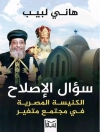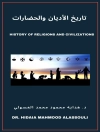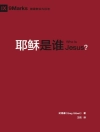Gotthold Ephraim Lessings Skizze von 1777/1780 bot seinen Zeitgenossen eine Bestimmung ihres Standorts in der Neuzeit an und begründete das im Rahmen einer Kultur- und Religionsgeschichte der ganzen Menschheit. Das war philosophisch und theologisch riskant, weil es den revolutionären Wechsel eines basalen Paradigmas bedeutete: Die zeitlich geschlossene Heilsgeschichte wird zu einer offenen Entwicklungsgeschichte, geprägt durch humanen Fortschritt und göttliche Pädagogik zugleich. Der Kommentar erklärt die Logik und das Pathos des Textes und stellt ihn in den Kontext der Debatten über Aufklärung, Bildung und Christentum. Insbesondere kontrastiert er mit Lessing das traditionelle Modell und das Modell I. Kants und seiner idealistischen bzw. materialistischen Nachfolger. Schließlich werden Aktualität und Ambivalenz des chiliastischen Paradigmas Lessings diskutiert.
Gotthold Ephraim Lessing’s sketch of 1777/1780 offered his contemporaries a clarification of their position in the modern age; he justified this in the context of a cultural and religious history of whole humankind. This was risky from philosophical and theological points of view, because it meant the revolutionary change of a basal paradigm: the temporally finite history of salvation now becomes a history of open evolution, characterized by human progress and divine pedagogy equally. The commentary explains the logic and the pathos of the text and sets it in the context of the debates on Enlightenment, Education and Christianity. In particular, it contrasts with Lessing the traditional paradigm and the one of Immanuel Kant and his idealistic resp. materialistic successors. Finally, the current relevance and ambivalence of Lessing’s chiliastic paradigm are discussed.
Despre autor
Walter Sparn, Dr. theol, Jahrgang 1941, studierte Theologie, Philosophie und Geschichte. Er ist emeritierter Prof. für Systematische Theologie und Religionsphilosophie an der FAU Erlagen-Nürnberg. Unter anderem ist er Mitglied und früherer Vorsitzender der FG Systematische Theologie der Wiss. Ges. für Theologie, der Ges. zur Erforschung des 18. Jh. und der European Society for Early Modern Philosophy.
Hauptwerke:
Wiederkehr der Metaphysik, Stuttgart 1976; Leiden – Erfahrung und Denken, München 1980; Wer schreibt meine Lebensgeschichte? Gütersloh 1990; Vom Weltbildwandel zur Weltanschauungsanalyse um 1900, Berlin 1996; Apokalyptik versus Chiliasmus? Erlangen 2002; Kulturhermeneutik, München 2008; Frömmigkeit, Kultur, Bildung (Theol. Aufsätze I) Leipzig 2012; Gott, Tugend und Unsterblichkeit (Theol. Aufsätze II), Leipzig 2016.




